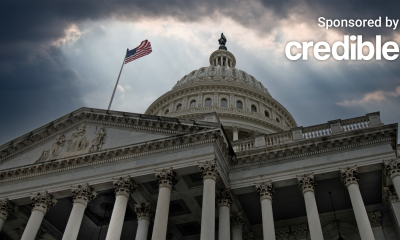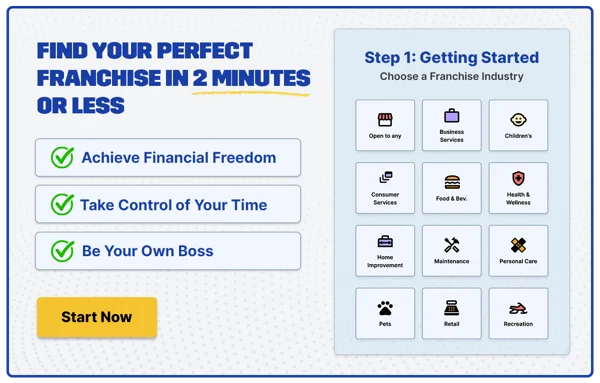Side Hustles
The 10 Best and Worst States to Start a Small Business

There are many important things to consider when launching your own business or side hustle, and location is at the top of the list. Local and state laws can mean different taxes, zoning regulations and licensing requirements, so it pays to be strategic about your choice of state, city and even neighborhood, according to the U.S. Small Business Administration.
Related: 5 Things Not to Do When You’re Running a Small Business
After all, some 20% of new businesses fail within the first two years of being open, according to the U.S. Bureau of Labor Statistics (BLS). The BLS also found that 45% of businesses fail within the first five years. That number jumps to 65% after 10 years.
Capital on Tap, a company that offers a credit card and spending management platform for small business owners, analyzed BLS data to determine the percentage of startups that are still active after three years — and broke down the U.S. states with the highest and lowest chance of survival in three- and five-year time frames.
“There are over 30 million small businesses in the U.S., making up an enormous percentage of the economy, and as this number continues to grow, so will innovation and commercial drive,” says Damian Brychcy, chief executive officer at Capital on Tap. “This research should serve as a positive sign to entrepreneurs in the top ten states who are thinking about starting a business.”
Image Credit: John Coletti | Getty Images. Boston, Massachusetts.
Qualities of business-friendly states
Before diving into the data, it’s important to consider what factors make a state attractive for new business owners. And it’s about more than just starting a business. The following factors can help keep small companies afloat and lead to ongoing success:
Taxes
Perhaps the most important factor of all, a business-friendly tax environment can keep costs down and put more money in your pockets. There are payroll, employment, income and corporate taxes to worry about, all of which can affect decisions around hiring and expansion. Some states also offer tax incentives for small businesses, which can remove expensive hurdles. Reviewing a self-employed tax schedule in your area can help.
Workforce
If you want to run a healthy, growing business, you’ll almost certainly be hiring employees. The best states for small businesses will have a plethora of available talent and a workforce with high levels of college education. Starting a business near a college or university can also attract interest from recent graduates. This is especially prominent in the technology industry.
Regulations
State policies regarding small businesses involve more than just taxes and deductions. Government programs can offer business owners grants and loans and incentivize investment from larger funders. Compliance is another factor. States can lower the costs of business by removing regulatory red tape, such as required government approvals or clearances.
Growth potential
You want to start your business somewhere it can thrive in both the short- and long-term. A number of factors can support this — for example, funding, investment in infrastructure and livability. A close proximity to sources of financing can help your company grow, as long as the area can support your workers and their families. States and cities with a low cost of living, good schools and solid infrastructure will not only attract talent but keep it.
|
U.S. states/territories with the highest rate of small business survival, per Capital on Tap |
|||
|
State |
1year average (%) |
3year average (%) |
5year average (%) |
|
Massachusetts |
81.91 |
64.96 |
54.38 |
|
Wisconsin |
81.13 |
64.93 |
54.97 |
|
South Dakota |
80.44 |
64.03 |
54.88 |
|
Minnesota |
80.96 |
63.97 |
53.51 |
|
Iowa |
80.85 |
63.71 |
53.65 |
|
North Dakota |
79.55 |
63.63 |
53.98 |
|
Pennsylvania |
80.69 |
63.51 |
53.18 |
|
Montana |
79.60 |
62.79 |
53.03 |
|
Hawaii |
79.37 |
62.22 |
52.21 |
|
North Carolina |
79.85 |
61.91 |
51.25 |
Massachusetts
With elite universities, a thriving tech hub, a strong economy and a highly educated workforce, Massachusetts tops the list. Nearly 82% of small businesses survive their first year. Boston is also a growing hub for STEM jobs and is home to many investors and potential employees. The state also boasts a strong Economic Development Incentive Program (EDIP) that provides tax and property incentives for job creators.
Wisconsin
Not only does Wisconsin have a relatively low cost of living, but the state has one of the nation’s best public university systems (read: highly educated workforce) and a business-friendly government that offers tax credits, low-interest loans and grants to small companies. Wisconsin also runs a public-private capital initiative through the Wisconsin Economic Development Corporation (WEDC), which recently announced a $100 million investment in the state’s startups.
South Dakota
Taxes are the big selling point for starting a business in South Dakota. With no corporate income, personal income, property or business inventory taxes, the state makes running a small company affordable for owners. The state is highly affordable and has very few regulations, both of which lower overall business costs.
Minnesota
Almost 81% of small businesses survive their first year in Minnesota, a feat that can be credited to the state’s supportive business environment, educated workforce and relative affordability for a high quality of life. Minnesota also has nine small business development centers throughout the state, which offer consulting, mentoring, networking opportunities and access to capital.
Iowa
With a high quality of life and low cost of living, Iowa is an attractive place to start and expand a small company. One of the biggest factors is extremely low energy and utility costs, which is especially important for manufacturing. Iowa cities also offer property tax incentives for small businesses and some of the nation’s lowest workers’ compensation costs.
|
U.S. states/territories with the lowest rate of small business survival, per Capital on Tap |
|||
|
State |
1year average (%) |
3year average (%) |
5year average (%) |
|
Washington |
75.12 |
54.60 |
42.75 |
|
District of Columbia |
76.04 |
54.73 |
43.73 |
|
New Mexico |
76.64 |
56.58 |
45.58 |
|
Florida |
77.00 |
56.82 |
44.95 |
|
Nevada |
77.18 |
57.38 |
46.79 |
|
New Hampshire |
76.65 |
57.52 |
46.63 |
|
Arizona |
77.34 |
58.00 |
46.74 |
|
Tennessee |
78.46 |
58.21 |
46.81 |
|
Arkansas |
77.64 |
58.24 |
47.25 |
|
Rhode Island |
76.76 |
58.30 |
47.75 |
Washington
Less than 43% of new businesses in Washington are still running after five years, thanks to expensive real estate, complex regulations and the nation’s highest statewide minimum wage ($16.28/hour). The state’s business and occupation tax is also calculated based on gross receipts, not overall profits, so businesses with slim margins will especially struggle.
District of Columbia
Washington, D.C., is one of the most expensive metro areas in the country, both in terms of real estate and overall cost of living. That means high salaries and high rents for offices or storefronts. The city’s business income tax and regulatory requirements are also relatively high, both of which can cut into profit margins.
New Mexico
High unemployment rates and limited access to capital make New Mexico a challenging state to open a small business. Skilled workers are lacking compared to surrounding states, and complex regulations can be a burden for business owners. More than 23% of small businesses fail within their first year.
Florida
Although Florida claims to be a thriving hub for entrepreneurs and small businesses, the data tells a different story: More than 55% of small businesses fail within five years. One of the biggest factors is the increasing frequency and severity of hurricanes, which has led to rising insurance costs. This affects both the available workforce and a company’s bottom line as premiums skyrocket.
Nevada
Almost 23% of new businesses fail within their first year in Nevada, and that’s despite no corporate or individual income taxes. Part of the challenge is local governments: regulations vary widely depending on your city of choice, with different requirements for specific licenses and fees. A heavy reliance on tourism can also backfire when travel to the state falls off, such as during the pandemic.
Read the full article here

-

 Side Hustles5 days ago
Side Hustles5 days agoThis User-Friendly H&R Block Software Package is Only $40, While Supplies Last
-

 Investing5 days ago
Investing5 days agoTikTok faces US ban deadline as users brace for fallout By Reuters
-

 Passive Income4 days ago
Passive Income4 days agoTrain for a New Tech Career in 2025 With This $25 Course Bundle
-

 Personal Finance6 days ago
Personal Finance6 days agoDecember inflation clouds Fed's outlook on interest rate cuts
-

 Side Hustles6 days ago
Side Hustles6 days agoSupreme Court TikTok Ban: What to Know, January 19 Deadline
-

 Passive Income6 days ago
Passive Income6 days agoUse These ChatGPT Prompts to Boost Your Amazon Sales
-

 Side Hustles1 day ago
Side Hustles1 day agoYou Might Not Get a New Job in 2025 Without These 2 Skill Sets
-

 Make Money5 days ago
Make Money5 days ago7 Types of Jobs With Flexible Schedules — and 10 Companies Hiring



















